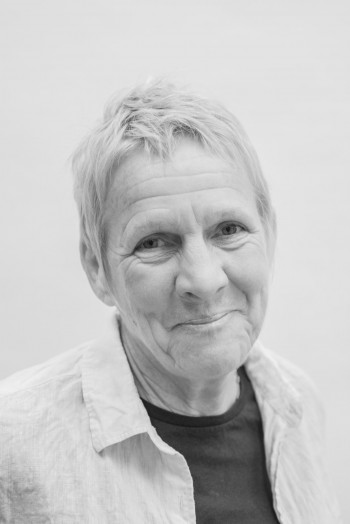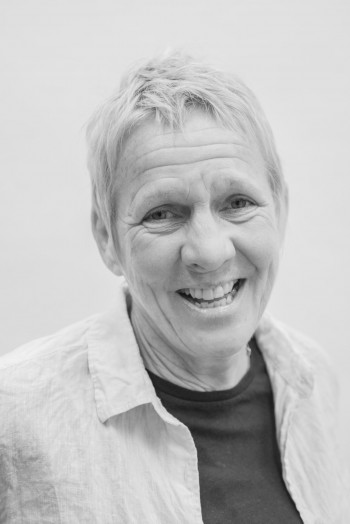Clayton Hairs: A heart full of vision and compassion
It is rare to meet someone who holds a balanced combination of intrinsically beautiful qualities: intelligence, humour, compassion, creativity and depth, all dotted with knowing self-deprecation that alerts you to their humanness. Photographer and meditator (among other things) Clayton Hairs is one of those people. His homeland South Africa was the springboard from which he leapt into a career of journalism and photography, which has led to a lifetime (so far) of exploring and cultivating wordliness and wisdom. But, like for many of us, becoming a parent has been where the toughest yet most enriching life lessons have been learned. When I met with Clayton, he asked me why I’m doing a project like The Soul Spectrum. And so that’s where we began.
Jess: In some ways, The Soul Spectrum is very much for my own purposes, as well as being a gift to others. I think it helps me find that place within me. I feel like ‘soul’ can be quite elusive for me, and I’m really intrigued by people who seem to be connected to that deep part of themselves a lot of the time.
Clayton: I think rigour is a part of it and there is a slightly unfashionable word that is appropriate – ‘discipline’. The word ‘discipline’ stems from the word ‘disciple’. It’s important to say something about the way we perceive this word from a Judeo/Christian/Muslim versus an (Eastern) mystical point of view. From a mystical perspective if you’re a disciple of some following then discipline isn’t something imposed from the outside, it’s something that drives you from within, because it’s really a thing born of love. It is a desirous thing, so you want to do it.
I had to find a way to be able to keep doing this sort of thing, because it’s the only skill I’ve got. Besides driving a car, I don’t know how to do anything else. The only thing I’ve ever known how to do is shoot television or take photographs. So I had to try and make it work in the context of my life. There is a lovely saying and it goes like this, ‘Freedom from freedom is real freedom’. When you have got no choice, you’ve only really got one choice, and that’s to do what is right according to your heart. That is absolute freedom.
Jess: It’s a bit of a mind bend.
Clayton: Yes. So, when you have no choice, this is the way out. When you have no choice there is only one choice. The notion of fate plays no part in it. In the West we have forgone the idea of fate. It’s such a narcissistic culture that we think that we have the power and capacity to influence everything and anything around us.
I’ve just come back from Bali, and I drove a car there for three weeks. I drove every single day and it is pandemonium, it’s manic, and for not one moment did I see any anger, not even once. And you think, “What is that all about?” The more I was there, the more I realised they have an absolutely fatalistic view of the world. And perhaps it’s because they believe in reincarnation and this might be just one of 10,000 lives. So this is just your lot, these are the cards you have been dealt, and you just make the best of it. That flies in the face of Western notions of spirituality, especially more recently where it’s become caught up in “If you can dream it, you can create it.” It’s very caught up in a materialist self-indulgence. “If you can think yourself happy, you will be happy,” but that is not life. Life is about crying as well, but when we cry we should cry properly – cry a lot.
Jess: There is a lot of that kind of thinking in the West. A very consumerist, capitalist mindset comes into play and that leads to individualism, and you need to preserve that individualism at all costs. It’s not fatalism, it’s about showing sheer determination to fight for yourself and your needs only.
Clayton: Or the opposite. You know the type of thinking that says, “You’re just lazy, you haven’t made your life,” as opposed to, “No, I have done my best and it’s okay”. We are so hard on ourselves, we are so relentlessly self-judgmental and we have almost no compassion for ourselves whatsoever in the West. As soon as that creeps in you can buy yourself a teaspoon of cement…
Jess: A teaspoon of cement?
Clayton: I’ve only ever come across this saying in Australia! “Go to Bunnings, buy yourself a teaspoon of cement and harden up.”
Jess: I’ve never heard that expression!
Clayton: It’s just so unnecessarily harsh, you know.
Jess: Yes, that’s true.
Be generous with compassion.
Clayton: Be generous with compassion. You can wallow in self-pity, but you can say, “Yeah, this is pretty hard and it’s alright, it’s okay.” Unfortunately, in the West we have this notion that being compassionate (including with ourselves) is not okay. We’ve also lost touch with community, we really have, because of this individualism and rampant capitalism. In Bali, there it is [pointing to one of his photographs], that lady is sitting there and she is absolutely surrounded by people. Sure, a lot of obligation comes with that, they are at ceremony every three or four days, it’s an incredible duty. In the West we cannot conceive of that degree of duty. Duty is almost a dirty word – a bit passe.
Jess: Can you tell me a little bit about where you were born?
Clayton: I was born in South Africa. I just went to a government school, very ordinary. It was the norm, private schooling was a very rare thing in South Africa and also in New Zealand, so my wife says. I grew up in a family that was so far removed from any spiritual notion it’s almost comical. I used to go to church with my granny, a Methodist Church on a Sunday. It came to a point where you had to get christened. I had the conversation with my Dad, something like, “I want to get this done.” And he said, “Great, go ahead.” So I said, “Will you come?” He said, “No, because I’d be a complete heretic going and sitting in the church for that one day.” In some weird way I remember the feeling that came to me, more than I remember the actual conversation. I was quite struck by his integrity in rejecting formal religion.
Jess: Yes.
Clayton: It was pertinent to me. There was a great deal of integrity in my father and in our family, but definitely not any sort of spiritual thing. So I don’t have any real background, I keep wanting to say in this life, but I very rarely think about reincarnation, to be honest with you. But I always did have a real sense of there being a higher power, of something beyond me, almost at a feeling level, and it was stridently dependent on the notion of integrity. Some sort of sacred thing, like there was something sanctified and sacred … even though I was pretty much brought up in an entrepreneur’s home by a money-making man.
It was an undeniable feeling and I never really acted on that. I was a sporty sort of dude. I was a bit of a renegade. We had far too much fun. So I didn’t really follow up on the feeling. I did a few things. I drove, I studied, I did something I didn’t really want to do because I was being paid for it. I did my undergrad and it took me twice as long as it should have.
Jess: What did you do?
Clayton: I did commerce and it took me five or six years to finish a three-year degree, but I finished it anyway. Then I bought an old Land Rover and I drove through Africa for about 18 months to two years, up to the Red Sea with an ex-partner, and then we came down again. Then I wanted to tell stories about Africa. The irony of being raised in South Africa is that we had no notion of where we were. We really didn’t really conceive of the fact that we lived in Africa. I had cousins who were born in Australia and my uncle moved here in the early 1970s. We used to talk to him on the phone. They used to talk about Africa and it was only after the telephone conversation had ended that I would think, “Oh, they were talking about here.” We had no idea that that is where we were. So when the whole change-over happened in 1994, I wanted to know about where I lived, so that was the purpose of the trip. So I came back from this trip and I wanted to tell stories about Africa and Africans because it was quite a sad place that most white South Africans really knew nothing about.
Jess: Yes, a lot of trauma.
Clayton: Yes, and it was almost slightly hopeless in many ways. Commercially speaking, it was so far behind. Anyway, I did a diploma in journalism and I happened to get work experience for two or three weeks at the equivalent of 60 Minutes in South Africa. When I was there one of the researchers left and they offered me a job and I was appalling. I had no idea about anything journalistically. I had done a three-month diploma and I just didn’t know what I was doing. I was surrounded by people who had done their entire undergrad in journalism and they were just on top of things and they knew how it all works. I didn’t have things together at all.
Jess: But they offered you the work for some reason, though?
Clayton: I think the executive producer wanted to have a moment with me, I think he was quite keen on me, I’m almost certain of it. And I think it was more to do with that rather than aptitude! He practically pulled me in at some point and said, “Look mate, I want to show you what’s behind me.” There was a whole pile of CVs, it was about a metre high, and he said, “Those people there would like to be sitting where you’re sitting, so you better pull your finger out, big time.” And I really didn’t have the wherewithal to do that.
My real problem was that I would miss the wood for the trees all the time. I was so caught up in detail that I really had no perspective. I would try too hard. I would research things to the nth degree. At the time I was in a relationship with a girl and she had a friend, Michelle, who did a meditation practice called Heartfulness Meditation. We would all go to dinner together and I would bash Michelle with questions on spiritual matters, because I was always reading about it.
She used to answer these questions and she’d get to the point where she’d say, “Look, I’m just a work in progress, Clayton, I don’t have all the answers.” And I loved that. It was just so honest, humble and so real. She suggested I try the meditation that she does. I went and I did some preliminary things, but I didn’t really follow it up. And then there was a bloke from India who was coming to visit, so she called and said, “Why don’t you come along?” So I did and I thought, “Well, I’ll just do this.” It was a daily thing and I thought I must give it a go. You know, why not. And I just found such a massive change, it was extraordinary, I was not getting caught up in the detail. I didn’t even realise that that was my problem, but it was now fixed and I could perceive how to overcome my shortcomings.
Jess: And you noticed that while in meditation? Or was that like a side effect.
Clayton: It was a side effect. I was getting stories to air and I was doing a great job. I was a lighter human being. I was quite shocked because I knew for a fact that it wasn’t really me. I was quite conscious of the fact that there was something happening beyond me. So, what was nice was that it didn’t bring about any egotistical thing. It wasn’t because of me being something special, it was because there was something beyond that which was special. There wasn’t a growth of ego, as a result. But then ego did come to play and I thought I was too good for the job.
I decided to go to India. I wanted to find out about this Heartfulness Meditation practice that I was doing. I did it for about a year and a half or two years. I had taught myself camera work because I was so appalling at the journalism side of things and now I thought I could ‘go it alone’. I thought I’ll become a producer camera man and I’ll go to India and do all these great these stories.
Jess: Did you have stories in mind? Or were you directed to do particular stories?
Clayton: Yes, I did. I did quite a few interesting things … a really strange thing happened to me before I had gone driving through Africa. I was with a girlfriend. We had a film, this was before I started taking pictures or anything. But she was studying graphic design at uni and they had to put a little film together. They asked me to shoot the video with a home handycam. I shot these pictures of buildings in Johannesburg while we were driving, really low angles of these spires into the sky. They asked me to put some music to the images and I used a song by Tom Waits called The Earth Died Screaming. Now Tom Waits was pretty out there in 1992.
We put it all together and we handed it in on a Friday morning. It had to be in before 9am, so we handed it in at the School of Design. Then four or five of us went to watch the movie Twelve Monkeys, which was on at the 10:30am screening (it was the first screening in the morning), and it just so happened to be the film’s release day in South Africa.
Clayton: Was it with Mel Gibson?
Jess: No, who’s the Die Hard guy? He was married to Demi Moore.
Clayton: Yes, that’s right.
Jess: Bruce Willis!
Clayton: That’s right, Bruce Willis! So, we went watch this film. My girlfriend and I couldn’t find the other guys from our home video group. It was getting late, the doors were shutting, so we went into the cinema and we sat by ourselves. We couldn’t see whether the others had arrived or not. As I said, It was the first screening of Twelve Monkeys of that day in the country, remember this was pre-internet. There’s a moment in that film where they use Tom Waits’ The Earth Died Screaming and low-angle post-apocalyptic visuals of buildings like spires in the sky. My girlfriend and I stood up in the cinema looking for the other people because we just couldn’t believe what was going on. They had snuck in the back and they had seen it as well. And when something so coincidental happens you have to ask, “What is that?!” You just don’t get more intense than that.
Jess: That’s the collective unconscious.
Clayton: Yes, that’s right, the zeitgeist. And I’ve always loved the idea of the zeitgeist. And this was just there and I couldn’t refute what was happening. So, fast forward a few years and I have gone through Africa and I have got this job and I have left the job because I think I am fabulous and…
Jess: I’m sure you were!
Clayton: I wasn’t really. I got a hold of a lady, her name was Medha Patkar. She’s North Indian, she’s a fabulous woman, she protests against the building of dams close to villages. She stands in the flood-plains and people bring her food to eat, but she does not leave that place until the waters rise. And the waters rise because they have built these dams. The waters rise and rise and she doesn’t move. It can get to the point where she is almost swamped and she just stands. I wanted to do a documentary about her so I called her on a day very soon before I was due to leave for India. It just so happened that she had come to Cape Town for a conference and she was on the exact same plane as me, going back to India. This was not planned at all.
Jess: Highly unlikely coincidence!
Clayton: Exactly. The weird thing is that I started doing the meditation and I forgot all about Medha Patkar so I didn’t go and do any of the filming. But I went to India; I spent a year there and it was pretty real.
Jess: Yeah, I have only been to India for a month. It’s a sensory festival.
Clayton: Yeah, that’s right.But what I was doing was exactly contrary to that, and that’s maybe why in India so much of this happens. It is so sensorial that the meditation helps you go beyond the sensory. I spent probably three hours a day in meditation and then I moved to London. I moved from this paradise to hell.
Jess: What were the key differences between your India experience and London?
Clayton: The nice thing about India was that I was with Indians, so I was in some way protected, it was like being in a family setting. Part of the practice that we do involves a spiritual cleansing at the end of every day. You literally let go of the entire day with a visualisation technique. Then there is a sort of supplementary part, a cleaning on a more subtle level. The idea is that you’re making room for expansion, so your consciousness can expand. I had been in India for nearly a year and then I went to the heartland of capitalism. Thrust into capitalism. It was so full on because I was almost assaulted at a spiritual level in London. It was so dense; the amount of heaviness and grossness, and I had been in a place of real lightness, it was really light and this was just dense heavy heaviness and it was pretty hectic.
Jess: So, what took you to London?
Clayton: I had a girlfriend. We tried to see if it would work, and she went to London, so I thought I would meet her there. So I was there for about eight years.
Jess: That was a very bumpy transition by the sounds of it, a confronting transition.
Clayton: Yeah. This is where I have a slight objection with the way that spirituality is presented in a New Age context. It’s the idea that everything is roses. One of the teachers that I followed always said if you want to smell the rose you need to feel the thorns, the two things go together, they are one and the same thing. Love is essentially heartbreak, there must be pain. So yes there were bumps, absolutely, but by the same token there was massive growth. Because I did learn what it means to let go and not try to control everything.
I don’t drink alcohol, it just naturally fell away when I began practicing meditation, it wasn’t a conscious thing. I didn’t make some sort of external imposition that said I can’t drink. I just noticed when I first started doing meditation in South Africa that I would go out with friends and I just had no inclination to get pissed. I thought to myself, “God, I’m going to be a social pariah.”
Jess: Australia is even worse!
Clayton: I realised that I would be drinking to satisfy others because I was feeling quite happy, I was in quite in a good place, I was feeling really at ease with myself, so the reality dawned on me that I would be getting drunk or drinking at least to make someone else feel at ease. I just thought that is ridiculous. Drinking just fell away and the same thing happened with meat; I don’t eat meat, either. So living in London and not being a drinker is a fairly challenging thing. I am sorry to say this, but when you’re in England the only time you see someone’s front teeth is when they’re smiling because they’re pissed. I found it to be a miserable existence. So it wasn’t the place for me, that’s the long and short of it.
Then I met Rochelle and that’s where the next chapter comes in. I’d probably go as far as to say the next chapter has been probably the hardest part of my life, without a doubt. The last six or seven years have been absolutely physically exhausting, but again it’s been the biggest growth.
Jess: So you met Rochelle, you married and now you have two children.
Clayton: Yeah, we met in Yorkshire. We were together probably three or four years before we had Phoebe. She’s seven now, so we have been together for about ten years. Phoebe didn’t sleep through the night until she was five. She would wake every two hours. You wouldn’t get longer than an hour and a half duration of sleep. That was…
Jess: Torturous.
Clayton: Absolutely torturous. Yeah. I carried on doing the meditation because it was the only thing that kept me there. I would have run away. I said to Rochelle the other night that the only reason we stuck together is because of the spiritual practice, there is no doubt about that.
There has to be some root to a relationship because otherwise it is just so vacuous. Like any Western society where alcohol is the go-to solution for everything, even though we don’t like to acknowledge that is the reality. The nice thing about moving to a new country is that you don’t have baggage of the past. So, yes, I do live in Australia and there is a massive alcohol problem, but I can avoid it. I move in a lot of foreigners’ circles, a lot of Indians and people from all around, cultures that don’t have alcohol as their base. Which is really quite hard for us to understand, it’s like, “What do you do? Do you never laugh?” Well, actually they probably laugh a lot more.
Jess: So what brought you and Rochelle to Australia? She is Kiwi, isn’t she?
Clayton: She is a Kiwi. We met in Yorkshire at a place called Boggle Hole. It’s fabulous, there is a story about a creature.
Jess: Boggle Hole, you couldn’t make that name up!
Clayton: Yeah, that’s right! I was looking for a location to shoot a crazy idea and there was a YHA in a place where you couldn’t even drive to, you had to walk to it. Which was in this place called Boggle Hole. There is a little cave and there is supposedly an animal or being lives in there, which is called a boggle, and it’s a hole so it’s call Boggle Hole.
Jess: That’s funny.
Clayton: Yeah, Rochelle was the chef and I was the only guest at the YHA, I don’t think they had many guests. She cooked for me and I said, “Look, I’m not sitting out there by myself in the lounge, I’ll come and sit in the kitchen with you.” So that’s how it all started. She wanted to study nursing and the only place she could do nursing without having to have an undergrad in nursing was to come to Sydney, so she did her Masters in Nursing. Rochelle has had quite a hard time as well, because she did excellently with her studies, she was top of the class. With all the trouble that we had with Phoebe, particularly the anxiety issues, she just had to give it all up. It’s been that sacrifice, which is another big word that I find is missing from the modern notion of spirituality.
Nature is completely dependable. The sun comes up every morning and it goes down every night, the seasons come and they go, they go and go around, and you can depend on them.
Jess: You’ve mentioned these words, like discipline, sacrifice and integrity as well.
Clayton: Yeah.
Jess: They sound like they’re your core values?
Clayton: Yes, absolutely.
Clayton: And I think that’s what nature is, nature is all those things. Nature is completely dependable. The sun comes up every morning and it goes down every night, the seasons come and they go, they go and go around, and you can depend on them. Maybe that’s at the core of our outrage at destroying the environment. There is something even though we don’t consciously put it into words that is beyond reproach, which is nature, and maybe that’s why we get so up in arms. We can’t square the circle of destroying it. One of the ideas is to be simple and in tune with nature.
Jess: I’ll go back to the meditation, we touched on the camera work and photography … to what extent is your photographic work in tune with your spiritual self?
Clayton: It’s a really good question, because it’s something that really bothers me. I would like to integrate these things [photography and spirituality], put it out there at a really subtle level in a moment of meditation. It sets up the results there and then, and I think that it’s happening. Just looking at these pictures of prayer [points at photographs of people praying], all of a sudden, I am so attracted to these pictures. And I am certain that’s a consequence of trying to make peace with what I do and…
Jess: Well, it’s funny, I can’t see how photography and spirituality would be incongruous. Where’s the…
Clayton: Where’s the dilemma?
Jess: Yes, it sounds like you’ve got a thorn in your side.
Clayton: I do. I did and…
Jess: From the outside looking in, photography and spirituality is all about the transcendent.
Clayton: That’s so good to hear.
Jess: It’s capturing a moment and holding that sacred or keeping it still so you can really look at the beauty.
Clayton: Look the idea is that you ultimately give up everything, that’s the ultimate because to move beyond you have got to let everything go and that idea has terrified me. Because it’s the only thing I have, it’s the only thing I know and I have to let that go.
Jess: Photography?
Clayton: Yes, but I think I’m realising more and more that it’s letting go of the idea that you are in control of the output. For example, I didn’t set any of these scenes up that you are looking at. They just happened and I happened to be there, and so I’m letting go of the idea that I’m somehow the driver. Maybe that’s been my solution because I have always thought, “Oh my god, I have got to give up all this, the thing that I love.” But that’s really coming from a place of the intellect, it’s not really a thing of the heart. A thing of the heart is far more subtle and integrative. When there’s a hiccup, it doesn’t bash into the hiccup. Things will happen so that the hiccup becomes a none thing, and that’s just how the heart works. But making peace with that is a really difficult thing to do. I think men particularly have a massive problem, maybe because we are traditionally the hunter gatherers, you have to go and make that kill, and you have to make things happen. So the idea of letting things happen is contrary to the masculine impulse. So probably that’s where my problems have come in.
Jess: Earlier you said there was a sense of something else working through you. There was this feeling that you it wasn’t necessarily you but a greater force directing you, your work and your decision making. Is that feeling still there?
Clayton: Yes. A really big part of the practice that we do is refining all these aspects of yourself. It’s not the demolition of the ego, that’s not the point. The point is to refine the ego. If you don’t have an ego, then you wouldn’t know you could stand up. It is an essential part of our being. So you refine the ego so it isn’t narcissism, it’s for our betterment. But the ego can be vainglorious. It wants to stand triumphant at any given opportunity, so you’ve got to be mindful.
It’s possible that I’ve taken that analogy too far, it’s my predisposition to take things to extremes. It’s an allowing and it’s a submission, allowing yourself to be submissive. For Westerners, and I’ll speak for myself here, that’s a difficult notion to get to grips with. Even the idea of having a spiritual master or someone who we perceive to be above us, it flies in the face of what us Westerners think we should be. It’s a lifetime’s work to make peace with that, it’s not a thunderbolt moment. It’s far more gradual, you’ve just got to keep at it.
Jess: And refine, refine.
Clayton: I love this idea, which I read in a book. I forget the name, but it was a psychology related book. As you opened the book, both pages were pitch black. There was literally a pinprick of white on these double pages. The author described the conscious mind as the pinprick, and the blackness as the subconscious. The conscious mind is so small as to almost be negligible amid the consequences of what we are. Everything we have done, everything that happens, is all part of the actions that we’ve taken. That’s how karma works, whatever you do will come back. The idea that you have some control over the subconscious terrain is just folly. Then the question comes how do we resolve the subconscious that we really don’t have the wherewithal to engage with? The meditation practice I do cleans the heart chakra to begin with. You know, people always talk about the heart, “He’s got a good heart, he’s warm-hearted.” Cleaning that part of ourselves makes us lighter. But it also gets us over this karmic debt that we have to pay. I’m not saying the cleaning removes it entirely, but it’s removed to a massive degree such that the karmic follow on is minimised substantially. But you have to be willing to say, “I can’t do it on my own.” It’s a huge thing for a Westerner, a Western male particularly, to make peace with the idea that there are others – a spiritual master for example – that might be more capable, or have more ability than you do in this area, and to submit to this calibre of being.
Jess: Yes, you need to allow that kind of evolution to occur.
Clayton: Yes, that’s a good word. ‘Evolution’. I mean you think about it, in the fifteenth century paedophilia was rife. That was the way it was. But humanity has evolved at a spiritual level. Now, in our modern context, it’s so appalling you can’t even talk about it. There is evolution at a group level but more importantly at an individual level. That’s our job.
There is the idea that one evolved soul might offset tens of thousands of others, because they’re vibrating at a level of consciousness which is far higher than hundreds of thousands of others. So, it doesn’t really matter provided you have got a few people of calibre who are able to stand in the wind. I think there are those who are permanently in tune, and provided they exist then they offset millions of others. That’s the only hope I think we have.
Jess: The Soul Spectrum looks at ideas of soul and spirit. What is soul in the context of the meditation that you practice?
Clayton: It’s an individual thing, but I think it’s an undeniable part of the greater thing. I think it’s a part of a whole. We do have soul and there are two aspects to the soul. One is that it is perfect and the other is that it needs to grow. It is perfect, but it can expand. If we can submit ourselves sufficiently to the higher powers then we can allow ourselves to be a vehicle of something much greater than ourselves. And when I say ourselves, I mean our soul, our individual soul.
What never leaves us that is the notion of ‘you’ and that notion of ‘you’ is your spirit, is your soul. So when a person dies you can still think of them, you’re just vibrating with them because they are still there, they are just not in physical form.
Jess: They’re not necessarily lost.
Clayton: Not at all. I remember we were looking for a place in London while I was there, an ashram, I suppose you would call it. We found a beautiful deconsecrated church, but the graves were still there. And our spiritual guide insisted, “There must be no graves at all.” We got talking with him about it and he said that the problem with Westerners is that they are so caught up in individualism that when the body dies the soul is so lost and so caught up in this notion of being flesh and blood that it never leaves the body.
So, if you’re in a cemetery or graveyard, there are heaps of spirits around because they are lost souls. They don’t realise they have got to go home, they don’t realise they’ve got to move to the next plane, they are so caught up in body consciousness. The person who looks at me in the mirror is not my body, it’s something beyond the eyes. The master wasn’t having any of that. He was terrified of ghosts, he just hated the idea of them.
Jess: You mentioned past lives before. How did you come to know your past lives?
Clayton: I don’t, I don’t at all. I don’t try and regress, I don’t do any of that stuff. It just seems to me that you get spring, summer, autumn, winter, spring, summer, autumn, winter, spring, summer, autumn, winter … it doesn’t stop. The water runs down to the sea, it evaporates, it goes into the clouds, it falls back to the earth, it runs down the stream, it doesn’t stop. So how can we possibly stop? How can we even have the idea that it’s going to stop? Are we so vainglorious that we are beyond nature? It’s really quite tragic to think there is nothing beyond this life.
I watched this TED talk yesterday with that French free diver. Have you seen that one? It was fascinating. His hero is Jacques Mayol. He talks about what he goes through and essentially he is just in deep meditation when he is doing it. He goes down to I think 123 metres. A big thing occurred to him: there was a photograph taken by a spacecraft. It was an image back towards earth from a billion light years away. We are just so, so insignificant, so small. He said that when he is down in those deepest parts, that’s exactly how he feels. All these grand ideas and plans don’t really matter because he is just so insignificant. He says all you can do is submit. That is a lifetime’s work right there, to be able to submit, to just let go. I think that’s exactly our challenge.
Jess: Which is huge.
Clayton: Massive.
Jess: Because there are times when you think you cannot possibly let go. For a political cause, for principles that need to be protected and defended. You wonder to what extent that letting go applies to those kinds of situations and injustices.
Clayton: I love the idea that the Indians have got about duty. Duty is a very big part of their country; they call it dharma. It really is not about outcomes, it’s got nothing to do with outcomes, it’s all about doing your absolutely best at the job you need to do now. That might be the military. It’s just doing your absolute best with integrity and with heart, and don’t expect any outcomes because the outcomes aren’t up to you. I think that’s the big take away from me.
Jess: So, what’s next for you? Have you got plans?
Clayton: I do meditations on Wednesdays. We are going to do the meditations at Sara-Jane Cleland’s naturopathy clinic. It’s a big thing for me. I never see myself as leader of any sort, so if there’s very a challenge, then this is it. I have always been the renegade, fly below the radar type. All of a sudden I am the stand up guy. If there’s ever been a learning curve, then here it is. This learning curve business never stops. You have got to be fallible.
Jess: Well it doesn’t stop because I think you must want to be learning.
Clayton: Yeah, I suppose.
Jess: Otherwise it could stop!
Clayton: Yeah, that is probably true.
Jess: Just watch daytime television with a bottle of beer!
Clayton: From a spiritual point of view, I have no idea. I’m quite happy not to know.
Jess: It’s a mystery.
Clayton: I am too small to understand the bigger picture. But I am absolutely confident that there are those that know what the bigger picture is. And I am quite at ease with saying, “I don’t know,” as a position of strength. About 20 years ago I would have baulked at the idea that saying “I don’t know,” is a strength. I don’t know the answer.
An important part of Heartfulness Meditation is this idea of transmission. The objective is to clean and expand the consciousness. But if you want to clean something, you have to use a device of a similar nature. If you’ve got smoke in a room and you take a tennis racquet to get the smoke out, it’s useless, you can’t do it. But open a window and let it take the air out, and all of a sudden it’s clean. In the same way, if you want the soul to be clean and to grow, then you have to use something of a similar nature. And that is transmission.
This system was rediscovered from about two thousand years ago. How can you let someone else grow in a spiritual way by using your own heart’s capacity? The other person has to be willing to try. And if they’re willing to try, then one person can allow another person to grow. If any evolution has taken place within me, then it’s been in spite of myself. All I’ve been doing is to be willing, and the rest follows from the transmission. It’s called prana hutti and it means life force. Allowing the life force to do its work.
Jess: Thank you.
* For more information about Clayton Hairs, please visit www.clayton-images.com
* Photographs courtesy of Hamish Ta-mé. For more information about Hamish, please visit www.shotbyhamish.com
* Interview very kindly transcribed by Alissa Angel
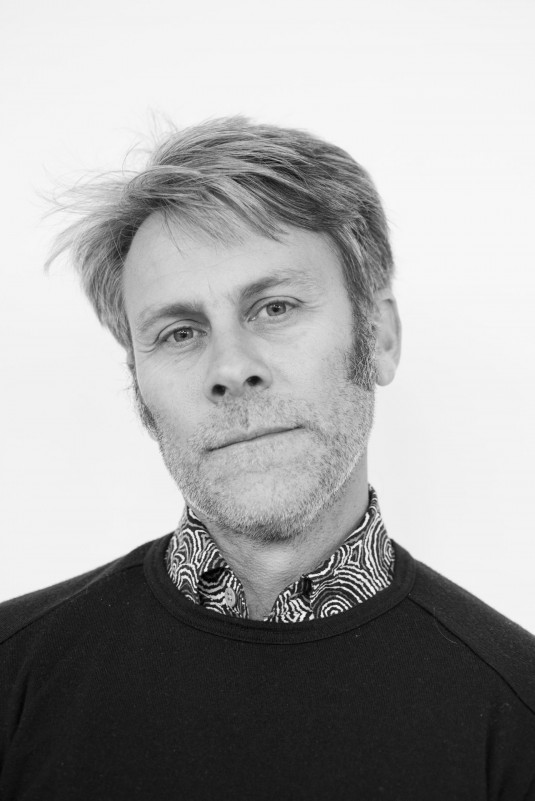 Clayton Hairs
Clayton Hairs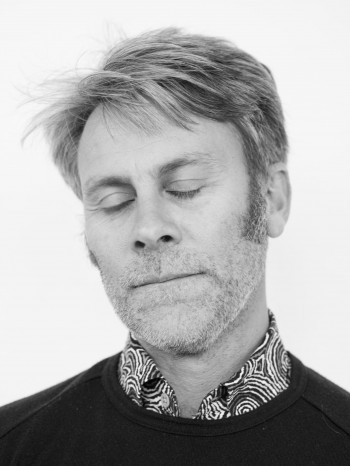
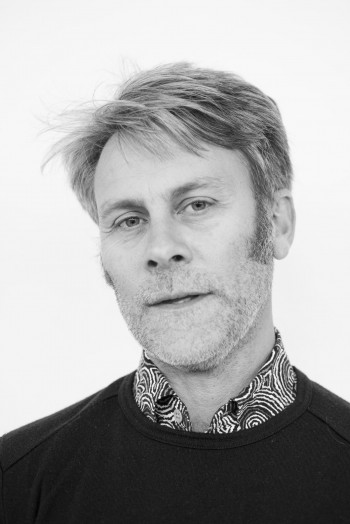
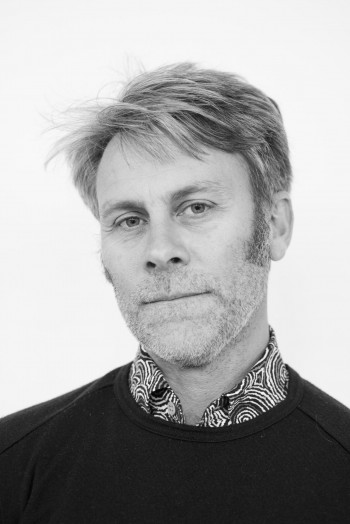
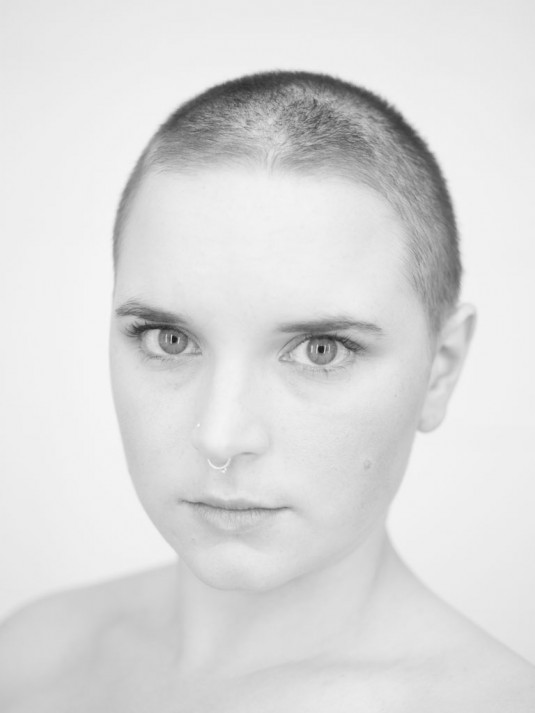 Tara Hunt
Tara Hunt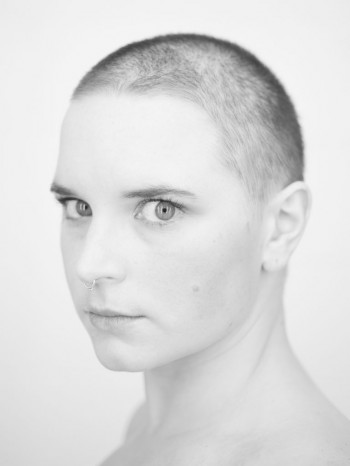
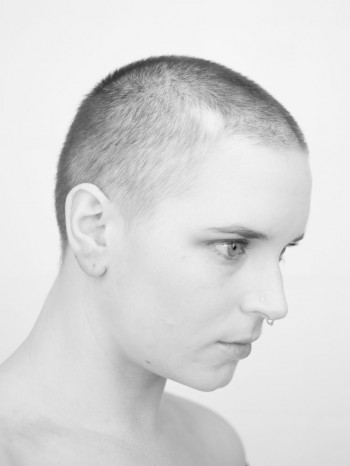
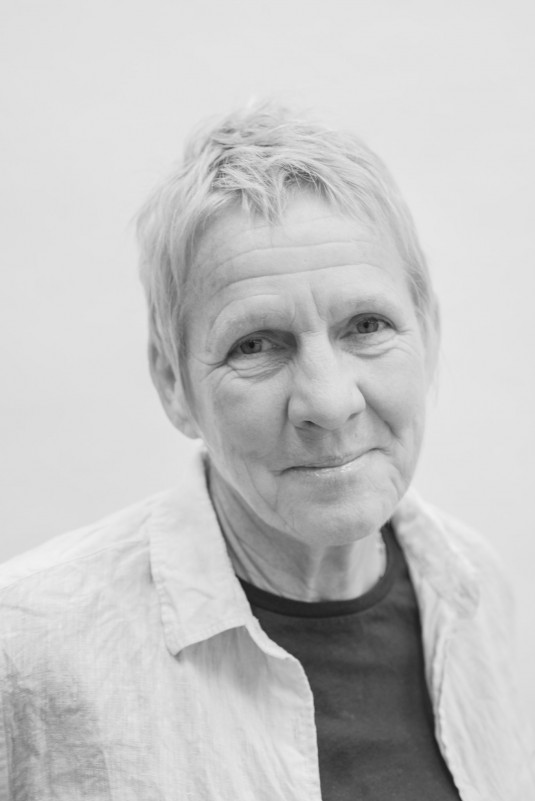 Zenith Virago
Zenith Virago